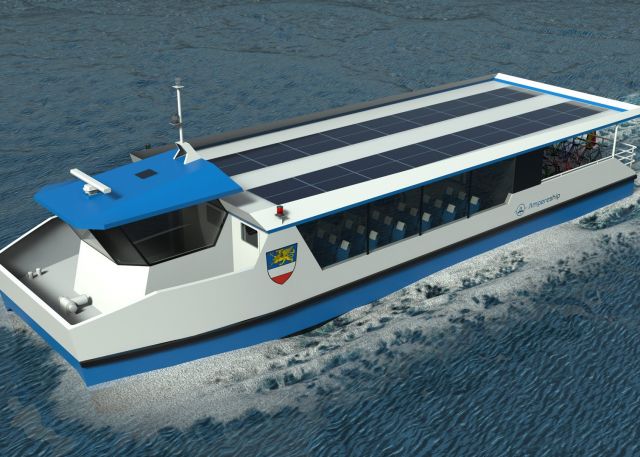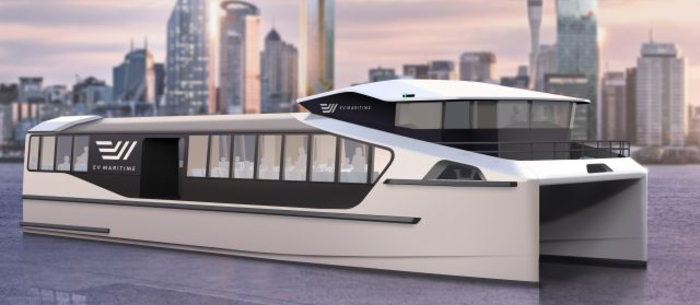Electric and hybrid ferries’ point-to-point operating patterns make them ideal for electrification. The market’s current strong growth is highlighted by the announcement this week of two more projects getting underway.
The first (pictured above) is a collaboration between New Zealand based companies HamiltonJet and EV Maritime, to construct composite-hulled, electric commuter ferries, which will initially be used in Auckland, replacing a fleet of diesel vessels. The ferries will be battery powered and use Hamilton’s EHX waterjet systems, designed specifically for electric and hybrid applications.
In Europe, the German Baltic port of Rostock has ordered an electro-solar passenger ferry from the Ostseestaal shipyard. The boat is based on a design by the yard’s sister company, Ampereship. Ostseestaal has already supplied 10 electro-solar vessels, including the Sankta Maria, a fully car-passenger ferry that operates on the River Mosel.
The new vessel will feature a pair of 45kW, rotatable props, which will be supplied by a 252kW lithium-ion battery system. For general operations, the ferry will be charged overnight, but power is also augmented by a roof-mounted solar array, rated at 10.8kWp.




